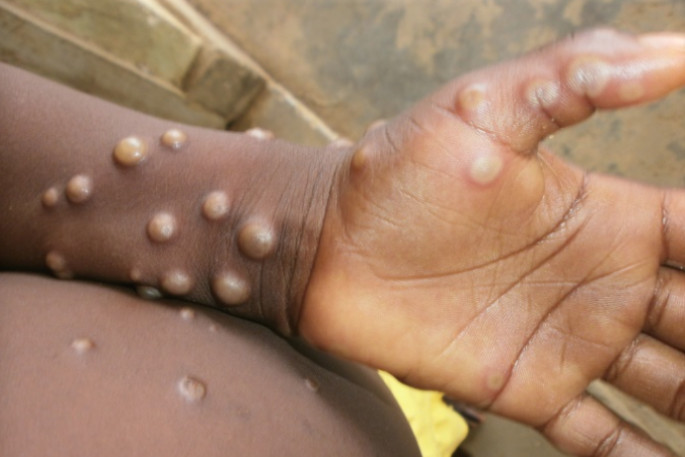Community transmission of monkeypox in New Zealand is likely before a prevention campaign exists, health officials say.
Te Whatu Ora Health New Zealand is also still working on a communications plan around the virus, which national director Nick Chamberlain confirms is weeks away.
It has also been confirmed a dedicated response team has been established - something a group of leading health advocates called for in a five-page letter pushing for urgent action on the country's monkeypox response.
That letter was sent to Prime Minister Jacinda Ardern on Wednesday, with a range of government ministers and health officials copied in, including Chamberlain.
Other actions included in the letter are prioritising a vaccine plan; better, stigma-free, public health communication; and support for self-isolation.
Chamberlain says their plan "contains most of the actions outlined in that letter".
Officials do not believe the current approach reflected how gay, bisexual and other men who have sex with men (MSM) are being disproportionately affected by the current global outbreak, despite the virus being able to infect anyone, he says.
As a result, Chamberlain and Public Health Agency deputy director-general Andrew Old will be meeting with one of the letter's signees, the Burnett Foundation (formerly the New Zealand Aids Foundation), next week.
"We will ask the Burnett Foundation and New Zealand Sexual Health Society [another signee] to participate in our ongoing planning and be involved in the dedicated team," he says.
Both organisations have previously been engaged early in the response.
Three cases have been confirmed in New Zealand and it is estimated there have been more than 23,000 cases, since May, in countries where the virus is not usually endemic.
RNZ originally asked questions of a similar manner to the health advocates' letter almost two weeks ago and again on Wednesday.
Also on Wednesday, it was leaked to RNZ that health officials were in talks with manufacturers about a possible delivery schedule for a vaccine, as well as antiviral treatments.
Key answers were only explicitly given after RNZ re-asked the questions at Thursday's Te Whatu Ora Health New Zealand press conference.
Chamberlain confirms the antiviral drug being looked at is Tecovirimat, which is sold as Tpoxx and will need Medsafe approval.
However, there are provisions to allow the vaccine and antivirals to be brought into the country and distributed before that, he says.
New Zealand did not have guaranteed access to vaccines yet but officials were trying to order around 20,000 doses.
Old says countries around the world are struggling to access supply of the vaccine, which only have a single manufacturer and is "not available for purchase commercially - it's only available for national supply".
Officials intend working with affected communities
Burnett Foundation chief executive Joe Rich previously told RNZ he's concerned how similar current plans are to those of Northern Hemisphere countries where they "have not been working".
Chamberlain says that's "fair enough" to say.
"I think in some countries the approach has worked and some it hasn't; and we'll learn from all of those international approaches," he says. "But we also ... want to make sure that our core messages are right."
Old says some countries are not doing well because they have a focus "purely on, sort of, narrow vaccine and therapeutic approaches".
"The point that I think's being made here is that we have a really good chance now, because we don't have any community transmission, to get ahead of this with broader public health approaches."
Officials need to work closely with organisations like the Burnett Foundation and the affected communities, he says.
Old is also conscious of ensuring any stigmas towards MSM were avoided.
Chamberlain says he has "time frames" for various aspects of a communications plan, which he expected to be completed in "a couple of weeks".
"There are things happening already," he says.
Chamberlain said he recognised there were unique nuances in the response that needed to be considered too. That included support for people in self-isolation, which could be up to four weeks - much longer than a Covid-19 isolation period.
Among the nuances to be considered are because of the disproportionate effect on MSM, there is a risk of homophobic related issues - including people having to isolate and not being openly MSM.
He also says messaging at New Zealand's borders is being considered as that is where the virus is most likely to be imported from - the risk of which is high.
Associate Health Minister Ayesha Verrall says she has been "very clear with officials that they work with members of the affected community to make sure that we do have effective, and human rights compliant, health promotion approaches".
"Reflecting on my experience looking after people with other infectious diseases, like HIV, it is incredibly important to work with affected communities in this outbreak."
Things will otherwise go wrong, she says.
"If we don't get how we talk about monkeypox right, people won't feel safe to get the testing and care that we need them to do."



0 comments
Leave a Comment
You must be logged in to make a comment.